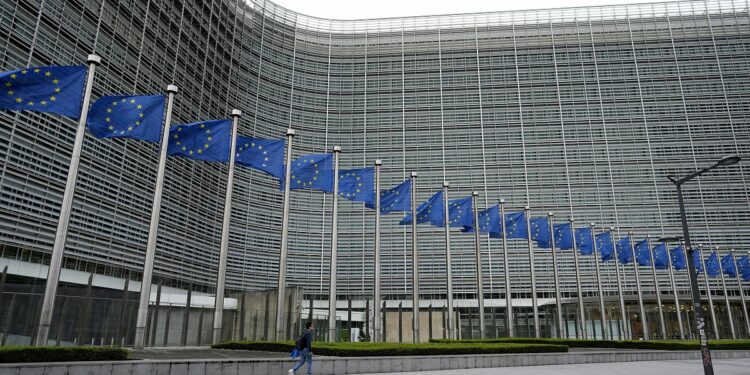“We agreed that a motion in parliament be agreed upon, stating that we will have a referendum on the continuation of Iceland’s European Union accession talks and that this referendum be held no later than 2027,” said incoming Foreign Minister, Þorgerður Katrín Gunnarsdóttir.
Gunnarsdóttir also heads the pro-EU Liberal Reform party and is widely expected to spearhead any accession talks.
According to a poll conducted by market research company Maskína in June, support for EU membership among Iceland’s population is growing.
That poll found just over 54% of respondents were in favour of joining the bloc, with the majority saying they thought households would be financially better off as part of the EU.
That’s a significant swing in favour of membership in a country that has generally been ambivalent about joining the EU.
In his ‘Public Opinion on the EU in Iceland since 1980’ paper published by Denmark’s Aarhus University, Ragnar Auðun Árnason said that for much of the 1980s and 1990s, Iceland was broadly split into three equal camps regarding EU membership; for, against and undecided.
But issues like the 2008 financial crisis, Brexit and a range of domestic issues has meant that Icelanders seem to be slowly warming to the idea of joining the bloc.
And a significant majority of those polled by Maskína – 74.2% – said it was important that the issue be decided by referendum.
New government unveiled
The new government was presented to the public by president Halla Tómasdóttir at a ceremony in the southwestern town of Hafnarfjörður.
Prime Minister Kristrún Frostadóttir, who is the leader of the centre-left Social Democratic Alliance, said she aims to cut inflation and interest rates.
“This new government will face challenges united. Our first task is to stabilize the economy and lower interest rates with strong leadership in fiscal policy. In the meantime, this government will break the deadlock, and work towards greater creation of wealth in the private sector. The quality of life in the country will be increased through unity surrounding these challenges,” she said.
The Social Democratic Alliance became the biggest party in November’s snap elections, called after the previous coalition government led by Bjarni Benediktsson collapsed due to infighting.
It agreed to form a government with the Liberal Reform Party and the centrist People’s Party. It’s the first time in Iceland’s history that the leaders of all the governing parties will be women.
ADVERTISEMENT
National broadcaster RUV reported that at 36, Frostadóttir will be Iceland’s youngest ever PM.
RUV also said that the incoming administration aims to reduce the number of government ministries in order to cut some administrative costs.
Source link : http://www.bing.com/news/apiclick.aspx?ref=FexRss&aid=&tid=6767855103f343d6a0b98811eeba79bb&url=https%3A%2F%2Fwww.euronews.com%2Fmy-europe%2F2024%2F12%2F22%2Ficelands-incoming-government-says-it-will-put-eu-membership-to-referendum-by-2027&c=3149615183999914838&mkt=de-de
Author :
Publish date : 2024-12-21 16:22:00
Copyright for syndicated content belongs to the linked Source.



